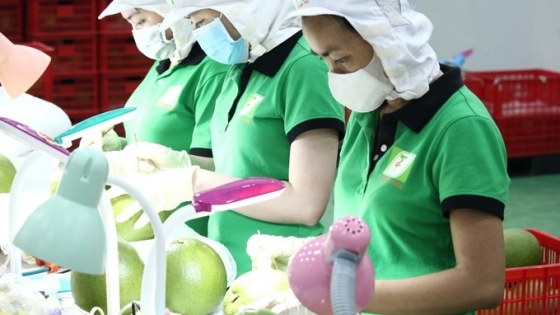(VAN) Disseminating new regulations of the frozen durian and grapefruit import market helps producers and businesses avoid the risk of being subjected to strict control measures.
On October 23, in Can Tho City, the Plant Protection Department (Ministry of Agriculture and Rural Development) organized a training program to guide provinces and cities in the Mekong Delta and Southeast regions on new regulations of importing countries on requirements for growing areas and packaging facilities for exporting frozen durian and grapefruit.
Program participants are representatives of cooperatives, packaging facilities, exporters, and local professional staff.
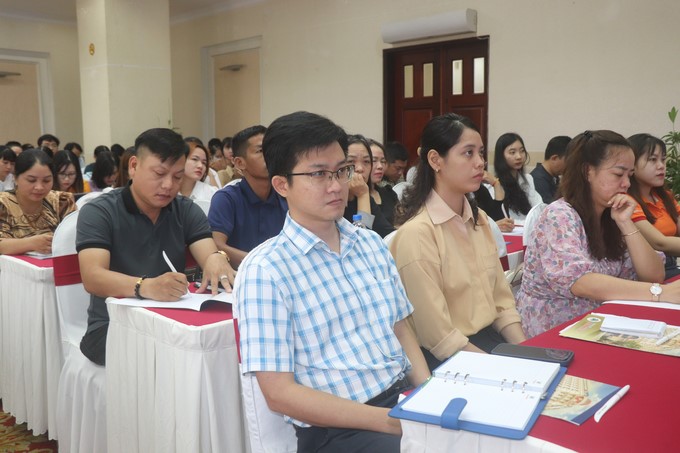
Representatives of cooperatives, packaging facilities, exporters, and professional staff in the Mekong Delta and Southeast regions participated in training on new regulations when exporting frozen durian and grapefruit. Photo: Kim Anh.
Mr. Nguyen Quang Hieu, Deputy Director of the Plant Protection Department, said that disseminating new regulations of the import market is the unit’s regular and continuous work, especially in the context of fruit exports being creating new momentum for the agricultural sector.
In addition, the training program also helps producers and exporters ensure compliance with regulations and avoid violations that may cause the importing country to apply additional measures.
In recent times, during the process of negotiating to open the market, the Plant Protection Department has proposed requirements and feasible technical solutions suitable to technical conditions in Vietnam. For example, reducing the durian freezing time from 8 hours to 1 hour at a temperature of -35 oC. The process of storing, transporting, and exporting durian must also ensure preservation at a temperature of -18 oC.
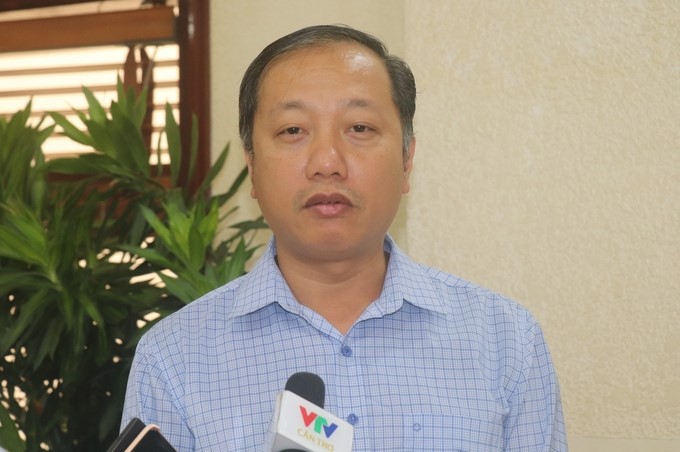
Mr. Nguyen Quang Hieu, Deputy Director of the Plant Protection Department, assessed that disseminating new regulations of the import market is a job that needs to be done regularly and continuously. Photo: Kim Anh.
Thus, export businesses can take advantage of technical advantages and encourage investment in new technology, such as using liquid nitrogen in freezing to preserve better product flavor and quality.
Unlike fresh durian, frozen durian is considered a food in the Chinese market. This country’s General Administration of Customs manages based on the provisions of Orders 248 and 249, including the registration of packaging facilities and food production facilities abroad. Mr. Hieu assessed that this form of management is completely different from the method applied to fresh durian.
Currently, the country has hundreds of businesses proactively implementing fruit and vegetable freezing technology. Among them, there are about 50-60 businesses that have invested in technology, specializing in freezing durian for export to demanding markets such as the US, EU, etc. This shows that the capacity and technology of businesses are not a matter of concern when Vietnam begins exporting frozen durian to the Chinese market.
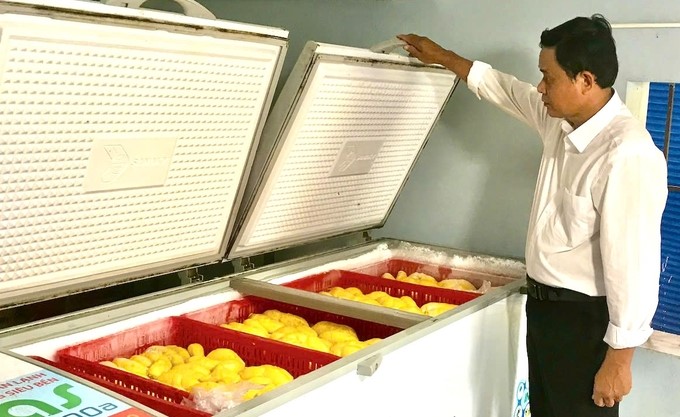
Durian that does not meet the standards for fresh export can be converted to peeled and frozen products for export. Photo: Minh Dam.
Mr. Hieu expects that the Chinese durian market from now to 2030 can expand and reach a scale of USD 10 billion. This is a huge opportunity for Vietnam’s durian industry thanks to the advantage of geographical location, taking advantage of borders to reduce logistics costs.
For grapefruit, the Mekong Delta is the region with the largest area in the country, equivalent to 32,000 hectares. Orientating for the 2025–2030 period, the region’s grapefruit growing area will increase to 110,000–120,000 hectares, with an output of 1.2–1.6 million tons.
Determining this as a strategic product, since 2016, the Plant Protection Department has promoted negotiations to export grapefruit to many different markets, such as the US, EU, South Korea, etc.
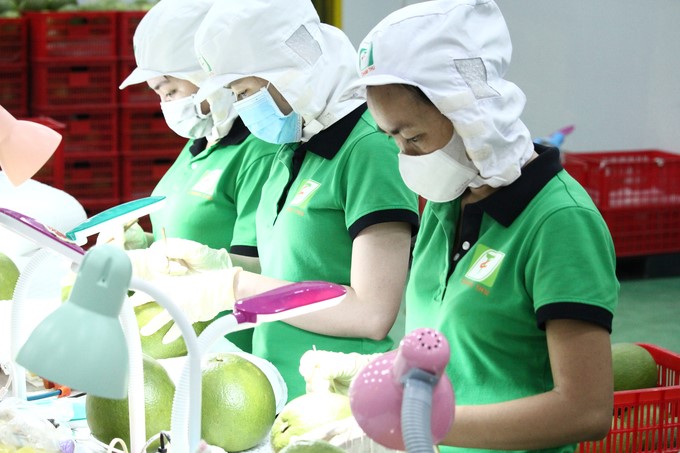
Process for controlling harmful organisms on grapefruit before export. Photo: Kim Anh.
In addition to fresh grapefruit, businesses also promote the export of products processed from grapefruit, such as canned water, grapefruit juice, and grapefruit essential oil. Currently, Vietnam’s fresh grapefruit is officially exported to 13 countries and territories, with a turnover of nearly USD 45 million in 2023.
The advantage of Vietnamese grapefruit is that it is used fresh instead of being juiced or used for processing like grapefruit products in some other countries. Therefore, disseminating the regulations of markets that have opened for Vietnamese grapefruit will create an overall picture of current and future grapefruit products towards expansion into China, Japan, and New Zealand markets.
Previously, during General Secretary To Lam’s state visit to China, the Ministry of Agriculture and Rural Development of Vietnam and the General Administration of Customs of China signed three key protocols, including the Protocol on inspection, plant quarantine, and food safety for frozen durian exported from Vietnam to China; the Protocol on plant quarantine requirements for fresh coconut exported from Vietnam to China; and the Protocol on quarantine and health requirements for farmed crocodiles exported from Vietnam to China.
Agriculture News | Agri Products Price



